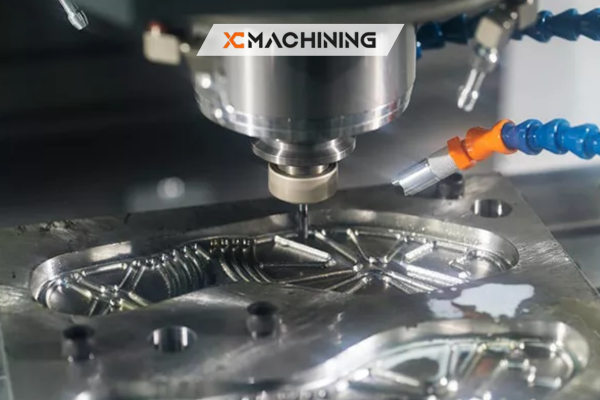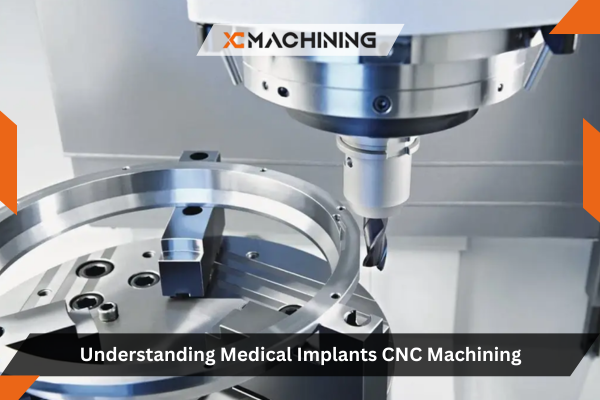The process of Medical implants CNC machining is necessary to develop helpful solutions for patients today. The need for implants that fit patients’ needs and use biocompatible materials is up, thanks to advancements in healthcare and the popularity of CNC machining.
Regardless of if you are an expert, have experience, or are only starting to learn, you will discover valuable information about the role of CNC machining technology in modern healthcare medicine.
Table of Contents
What is the Importance of Medical Implanting for CNC Machining?
CNC machining for medical implants is about creating exact surgical components like joint replacements, bone plates, and dental implants using advanced computers. CNC machines can make implants with utmost precision to microns, making them the main choice for implants. Medical implants are made with tight rules, dependable practices, and efficient production processes.
This is why medical implants must be created using CNC machining in medical field:
- Unmatched Precision: CNC tools help manufacture medical implants to fit the exact details of each type of implant.
- Repeatability: Because CNC machines match all the parts, following standards and being aware of safety is guaranteed.
- Customizability: Ideal for the manufacturing of tailor-made implants designed for each patient.
- Speed and Scalability: CNC machines can create more items faster once the design is loaded.
Top Medical Implants Made Possible by CNC Processing
1. Orthopedic and Joint Replacement Implants
CNC-fabricated joint replacements like hips, knees, and shoulders require durable, biocompatible metals such as titanium and cobalt-chromium. Orthopedic CNC production ensures these implants meet medical-grade standards and patient-specific anatomical needs.
2. Dental and Maxillofacial Implants
CNC machining is used to create fine and small parts such as abutments and screws in dentistry. Because of their function, these components must be close-fitting and smooth to avoid infection and remain in place.
3. Custom Prosthetic Components
Providers offering custom prosthetic CNC services use advanced CAD models and machining techniques to build prosthetics tailored to a user’s specific mobility and aesthetic needs. All of these items are fabricated more quickly and reliably with CNC.

Common Materials Useful for CNC Machines in Medical Applications
Materials that are tolerant of being near the skin and easy to machine with CNC are chosen to make implants. The materials used for these products must be safe inside the body, so they do not cause any harm. CNC machines can handle various types of materials.
Titanium and Titanium Alloys
Many select titanium implants for machining since they are reliable, safe, do not corrode and are light enough for bone integration. Thanks to its properties, it is an excellent choice for creating implants that need to support weight.
Stainless Steel (316L)
For tools and implants needed only temporarily, stainless steel 316L is generally chosen. Turning and milling aluminum is possible and it is very cost effective.
PEEK (Polyether Ether Ketone)
They must be strong and not show up too clearly on X-rays. It is for this reason that PEEK material is chosen. Even though it takes more skill to work with, it is being used more because it works well with skin and stays strong over time.
Cobalt-Chromium Alloys
Although cobalt-chromium-based materials are tough and last a long time in knee and hip replacements, they are trickier to machine than titanium materials.
Benefits of Medical Implants CNC Machining
- Tight Tolerances: To make certain that each implant performs as it should and does not fail.
- Surface Finishing Options: There are many suitable surface finishes available in CNC machining for use in the medical and surgical sectors.
- Automation and Consistency: A well-designed program allows CNC machines to run day and night, always producing parts of the same high standard.
- Data-Driven Accuracy: The use of CAD/CAM software makes designing and manufacturing items very precise.
From 2023 to 2030, the global medical implants CNC machining market is projected to grow at an annual rate of 7.5%.
- Doctors use titanium for the majority of their medical implant parts.
- Demand for personalized implants is increasing due to the development of personalized medicine.
How To Identify the Best CNC Machining Services for the Production of Medical Implants
Certain elements need consideration when looking for the best possible CNC machining company or service.
- You should consider the experience, qualifications and use of CAD/CAM at the company before choosing a machining partner.
- Experience with biocompatible material machining
- A large number of companies in the industry receive ISO 13485 certification to maintain the highest standards in manufacturing medical devices.
- In-house CAD/CAM capabilities
- Specialization in making a smaller number of custom-made Medical Implants CNC Machining
- Look for vendors who specialize in orthopedic CNC production and CNC-fabricated joint replacements to ensure the highest level of quality and precision.

Improving Direction of CNC Machining for Medical Implants
1. 5-Axis CNC Machining
Ensures complex shapes can be made fast and accurately, needing less tool switching.
2. Hybrid Machining
When you combine additive manufacturing with CNC, you can build implants with spaces or holes that make the bond between bone and implant stronger.
3. Smart Machining with AI Integration
By using AI and the Internet of Things, CNC systems can track tool life, prevent errors, and choose paths automatically, making machines more efficient and the quality of implants higher.
Final Words
Thanks to modern tools, expert workers, and biocompatible resources that medical implants CNC Machining are being improved rapidly. From titanium implant machining to custom prosthetic CNC services, these machines continue to set the standard for medical manufacturing.
For those in healthcare, biomedical engineering, or orthopedics, information about Medical Implants CNC Machining can greatly improve the results you provide for your patients.
FAQs About Medical Implants CNC Machining
Which materials are most popular in Medical Implants CNC Machining?
In Medical Implants CNC Machining, metals such as titanium, cobalt-chromium, stainless steel, and PEEK are frequently used. Most people prefer these materials because they are easy to use with implants and are very durable.
What makes CNC machining the leading technique for making medical implants?
Precision and the ability to repeat the process are the main reasons CNC machining is used for making medical implants over other methods. The use of this technology helps ensure accurate results, regularity and the creation of special implants from demanding materials.
Are CNC-fabricated joint replacements safe?
All implants are made according to strict specifications with approved FDA materials, so they are extremely safe and effective.
What part does CAD/CAM play in creating medical implants for CNC machines?
CAD/CAM is key to guiding the way medical implants are machined by CNC machinery.
Thanks to CAD/CAM, every stage of making prosthetics and implants is accurate, and unique devices can be produced.
How does CNC machining aid in the delivery of personalized healthcare?
Using CNC machining, medical implants and prosthetics can be made more quickly than with alternative methods. It allows for the fast and precise production of custom prosthetic CNC services, tailored to individual patient anatomy and needs.





